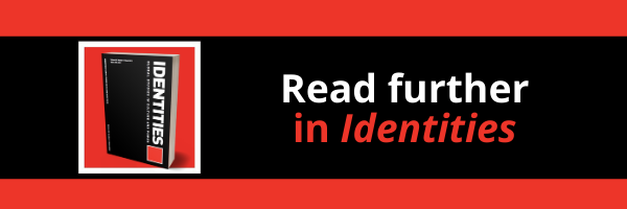|
|
|
In the aftermath of the 2016 attempted coup against the Erdoğan government in Turkey, several hundred Turkish-Dutch citizens took to the streets in the Netherlands. Some protesters harassed a journalist documenting the protests. Prime Minister Mark Rutte responded by telling the demonstrators to ‘piss off to Turkey’. This statement exemplifies how Turkish-Dutch citizens, born and raised in the Netherlands, can be scrutinised and quizzed about their loyalty and the extent of their integration. When they express deviant behaviour or political views in the eyes of the majority, they are considered ‘Turks’ or ‘Muslims’ only, which is not reconcilable with being ‘Dutch’. Politicians often understand Dutchness in a culturalised way, in which progressive ideals such as gender equality, sexual liberty and democracy are considered to be important signifiers of Dutchness. This frame creates a contrast between progressive ‘natives’ and ethnic minority citizens, who are othered as backwards, not sharing these progressive values.
How do Turkish-Dutch Muslim young adults deal with such stigmatisation? This is the question we raise in our Identities article, ‘Claiming the right to belong: de-stigmatisation strategies among Turkish-Dutch Muslims’. Investigating de-stigmatisation strategies by Turkish-Dutch youngsters contributes to understanding processes of belonging, social inequality and ethnic boundary-making. Stigmatised individuals can contest and rephrase their position, bringing about social change and upsetting existing social categories. To explore de-stigmatisation, we interviewed 25 Turkish-Dutch, Muslim young adults and conducted ethnographic observations in two youth groups.
Young adults face stigma in various ways. They describe situations in which politicians, media and ethnic majority members demand of them to choose between their identifications, negatively label them as ‘Erdoğan supporters’, or associate their Muslim identity with conservatism or extremism. These experiences stand in stark contrast with how youth perceive themselves: they often strongly and positively identify as Muslim, Dutch and Turkish, depending on the context: ‘I am a Turkish Dutchman or a Dutch Turk. You can choose. I don't mind at all which one you choose, but I am both. And... I am proud to be both’ – Arzu, 21 year-old-student. How do Turkish-Dutch youth experience this discrepancy between how they are externally labelled and their self-identifications?
We find three de-stigmatisation strategies: confronting, convincing and contextualising. First, in a confrontational strategy, Turkish-Dutch young adults insist that they should be accepted, regardless of their political, cultural or religious views. We show how demanding acceptance also pertained to public space. Turkish-Dutch young adults, for instance, claimed visibility for their Muslim identifications by organising an Iftar dinner in a prominent public location in the city. Second, we describe a convincing strategy. Youngsters reclaim their Turkish and Muslim heritage as historically contributing to science, democracy and feminism, which is often solely associated with ‘the West’ in cultural nativist discourse. Third, some youngsters use a contextualist strategy. Participants used this strategy when navigating conflicting demands or potential stigma in school, family, majority society or religion. Instead of choosing between conflicting positions, some argued that their religious behaviour or political opinions should be adapted to the country-context, sometimes referring to their positionalities as belonging to a minority in the Netherlands, but to the majority in Turkey, or tracing their own opinions to knowledge and experience of both countries. We show how stigmatised individuals flexibly use different de-stigmatisation strategies and illustrate the context-dependent nature of such strategies. We also observe how de-stigmatisation is not solely done by individuals. Instead, de-stigmatisation work also takes place at a group level, for instance, within ethnic/religious groups. Young adults debate and sometimes disagree on what the most effective or ideal strategy would be. They also learn new strategies and empowering narratives to effect change. This demonstrates the plurality of opinions and de-stigmatisation strategies within a minority community. Although Turkish-Dutch youngsters claim the right to belong, our findings also call attention to the pervasiveness of nativism and the need for inclusive politics.
Blog post by Judith de Jong and Jan Willem Duyvendak, University of Amsterdam, Netherlands
Read the Identities article: de Jong, Judith & Duyvendak, Jan Willem. Claiming the right to belong: de-stigmatisation strategies among Turkish-Dutch Muslims. Identities: Global Studies in Culture and Power. DOI: 10.1080/1070289X.2021.1949816
Explore other relevant Identities articles:
Muslim women as ‘ambassadors’ of Islam: breaking stereotypes in everyday life Integration, transnationalism and transnational Islam Immigration, religious diversity and recognition of differences: the Italian way to multiculturalism
0 Comments
Your comment will be posted after it is approved.
Leave a Reply. |
|
Explore Identities at tandfonline.com/GIDE |
|
The views and opinions expressed on The Identities Blog are solely those of the original blog post authors, and not of the journal, Taylor & Francis Group or the University of Glasgow.


